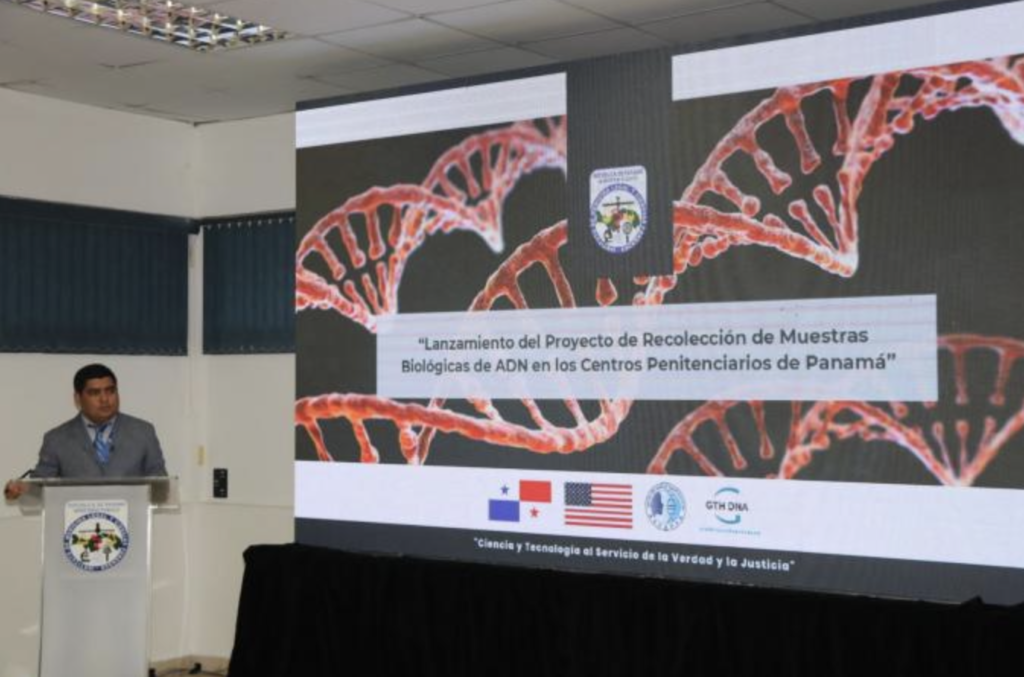
In Panama, a project to collect DNA samples (deoxyribonucleic acid) began this Friday, August 25 among the prison population.
José Vicente Pachar, general director of the Institute of Legal Medicine and Forensic Sciences, said that “DNA is a unique and personal footprint that we all have.”
Each of us has a different DNA, a genetic code that differentiates us from everyone else. Therefore, the collection and storage of DNA samples is an invaluable tool in the fight against crime and [for] humanitarian purposes.”
The use of DNA technology, for criminal investigations and for humanitarian purposes, has achieved a revolution in the forensic sciences, the statement on the launch of this program detailed.
The analysis shows that significant progress has been made in Panama and has now been consolidated as a regional reference in forensics.
The non-invasive biological sampling gives continuity to the project of the “DNA Database and Database”, which is being carried out by the Institute of Legal Medicine and Forensic Sciences, together with the Center for Human Identification, of the Center for Health Sciences of the University of North Texas.
This project aims to support the investigation related to identification in criminal matters and for humanitarian purposes, providing scientific elements to the administration of justice.
On the other hand, it was detailed that for the taking of samples, Law No. 80 of November 23, 1998 has been taken as a reference point, “by which a base and a forensic bank of deoxyribonucleic acid data is created and other provisions are dictated.”
The project contemplates the prisoners of the Penitentiary Centers, which began in the province of Chiriquí.
With this initiative Panama becomes one of the more than 50 countries worldwide to have a DNA bank and the first in Central America that includes people deprived of liberty.
To develop this purpose, awareness days were held for the staff of the Institute of Legal Medicine and Forensic Sciences, Judges and Personal Prosecutors of the General Directorate of the Penitentiary System and also the Deprived of Liberty, with the aim of publicizing and expand on the importance of the project.
For his part, Euclides Castillo, director of the National Penitentiary System, indicated that “as a Penitentiary System the development of the project will allow in a timely manner to scientifically identify this population, which represents a great advance as a State and raises us to modern standards in terms of prison affiliation and identification of the population deprived of liberty.”